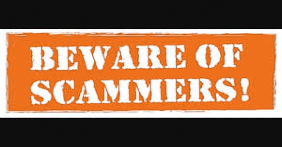Fraudsters and criminals are exploiting genuine fears about COVID-19 in order to prey on members of the public. Older and vulnerable people who are isolated from their family and friends are especially at risk. The UK Government has urged people to remain on their guard following a rise in COVID-19 scams that seek to benefit from people’s uncertainty about the virus.
Members of the public are advised to remain sceptical about scam products such as supplements and anti-virus kits that make false claims about curing or preventing the disease. In some cases, individuals have been pressurised on their own doorsteps to buy anti-virus kits or persuaded into purchasing products that are advertised on their social media news feeds. Scam call-centres that previously targeted UK consumers with questionable health products are now offering supplements that supposedly prevent the onset of COVID-19.
People are also being urged to look out for signs of neighbours being targeted by doorstep scammers. While there are genuine groups of volunteers providing help during isolation, there have been several reports of criminals preying on residents, often older people or people living with long-term health conditions, by door-knocking at their homes and offering help.
The criminals often claim to be charity workers to help them appear legitimate before taking advantage and stealing possessions and money. There are genuine charities providing support, so consumers should be wary and ask for ID from anyone claiming to represent a charity.
Common COVID-19 scams include: Criminals targeting older people on their doorstep and offering to do their shopping or pick up prescriptions. Thieves take the money and do not return. And, doorstep cleansing services that offer to clean drives and doorways to kill bacteria and help prevent the spread of the virus.
There are also, unsurprisingly, a multitude of online scams. Email scams aim to trick people into opening malicious attachments or links, which put people at risk of identity theft and loss of personal information, passwords, contacts and bank/credit card details. A common tactic is an email offering information about people in the local area who are affected by coronavirus.
Offers of useful sounding, but fake, online resources such as false Coronavirus Maps can deliver malware such as trojans, which are information stealing programs that can infiltrate a variety of sensitive data.
Refund scams are also common and take the form of companies offering fake holiday refunds for individuals who have been forced to cancel trips. People seeking refunds should be wary of fake websites set up to claim holiday refunds.
There is also a proliferation of counterfeit goods such as fake hand sanitisers, face masks and COVDS-19 swabbing kits which are sold online and door-to-door. These products can often be ineffective or, at worse, dangerous and unsafe. There are reports of some potentially harmful hand sanitiser products containing glutaral (or glutaraldehyde), which was banned for human use in 2014.
As more people self-isolate at home there is an increasing risk that telephone scams will also rise, including criminals claiming to be your bank, mortgage lender or utility company. There have been reports of scammers extorting money from consumers by claiming they are collecting donations for a COVID-19 vaccine.
At a time when neighbourhoods and communities are coming together to support each other, it is despicable heartless criminals are exploiting members of the public, including some of our most vulnerable citizens. It is vitally important that everyone is on their guard for possible COVID-19 scams and to look out for vulnerable family members, friends and neighbours who may become a target for criminals. If you see anything suspicious, report it to Action Fraud https://www.actionfraud.police.uk/
You could also help protect your neighbours by joining Friends Against Scams, which provides free online training to empower people to take a stand against scams. To complete the online modules, visit www.friendsagainstscams.org.uk

